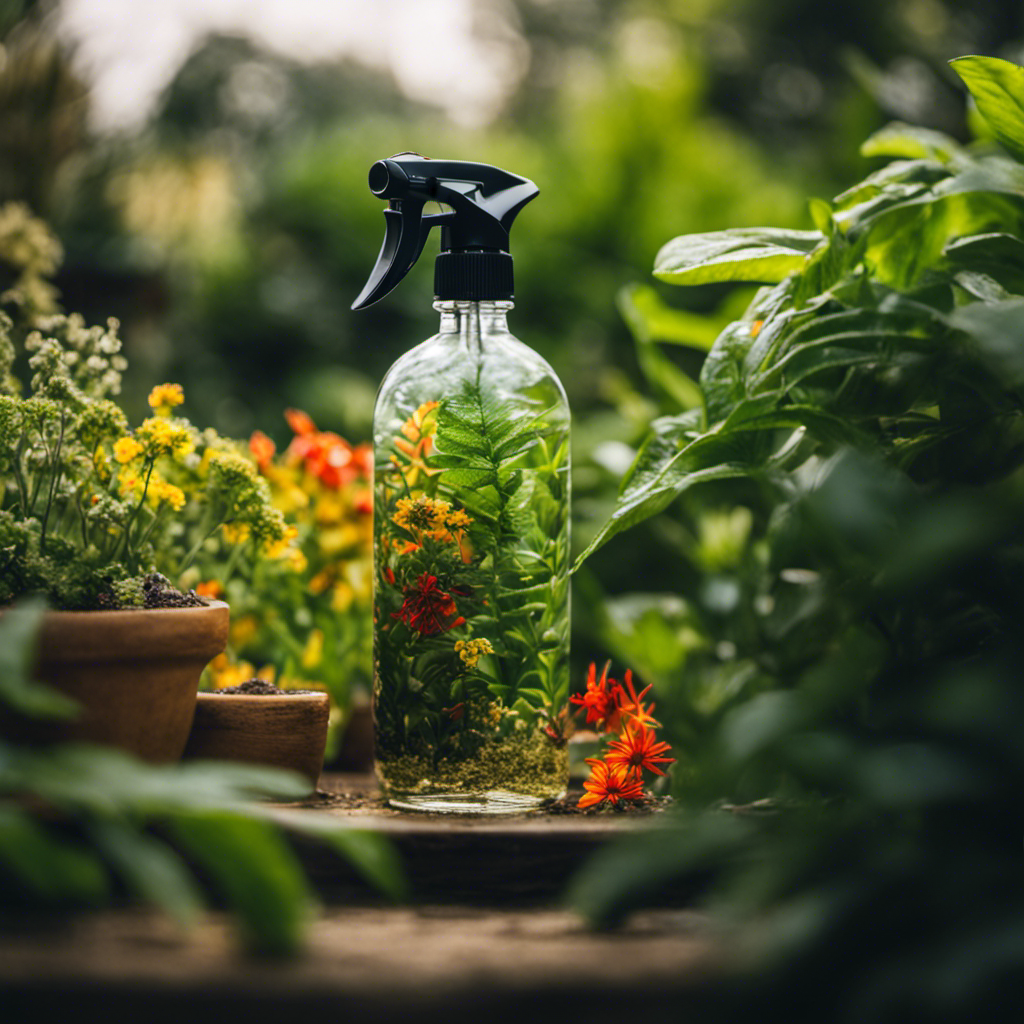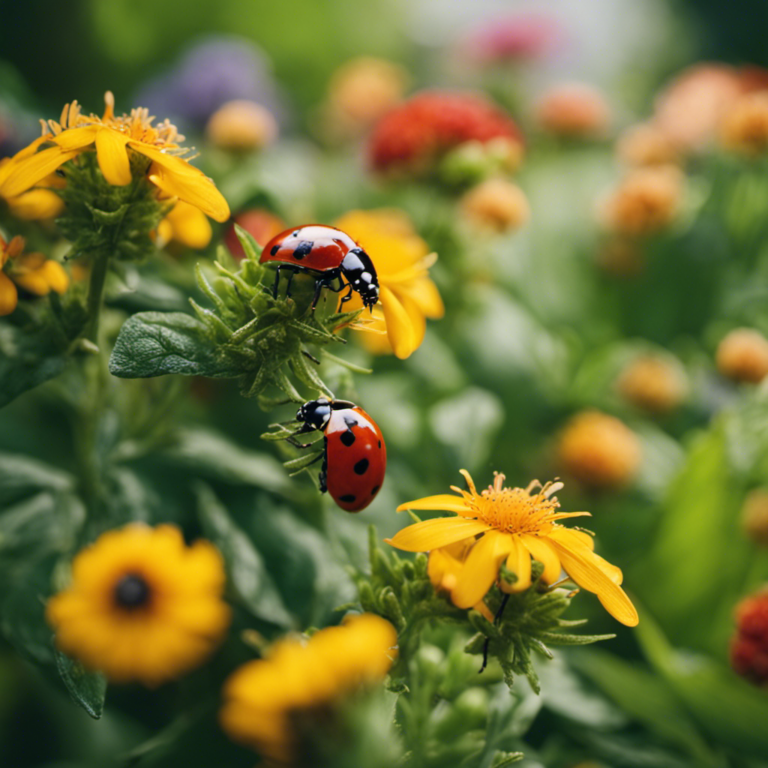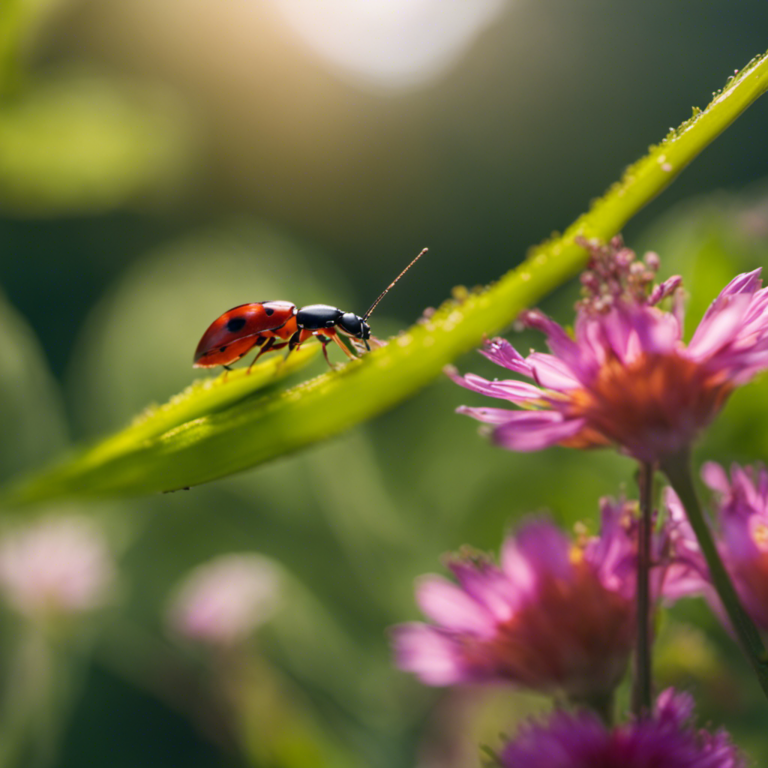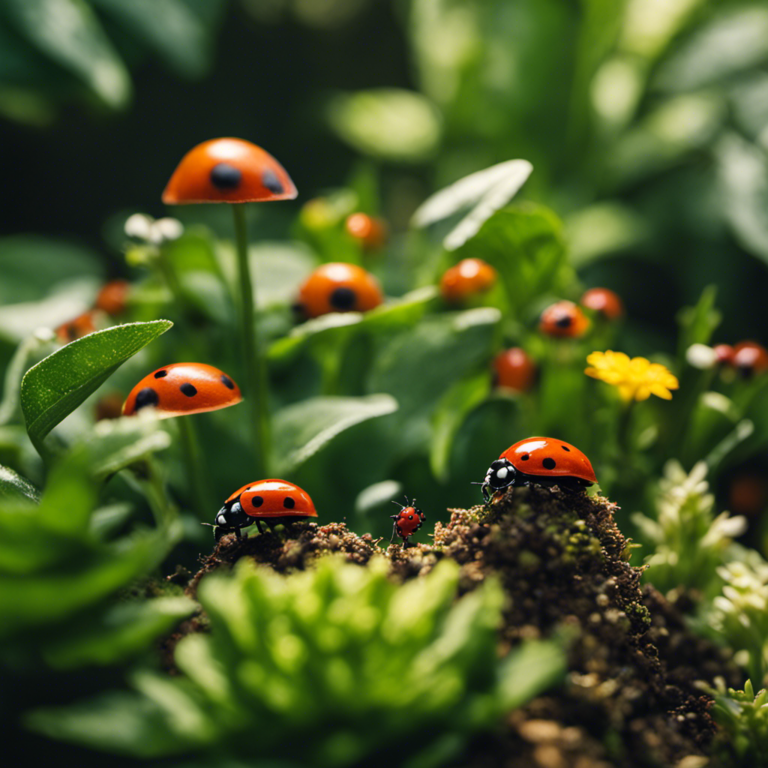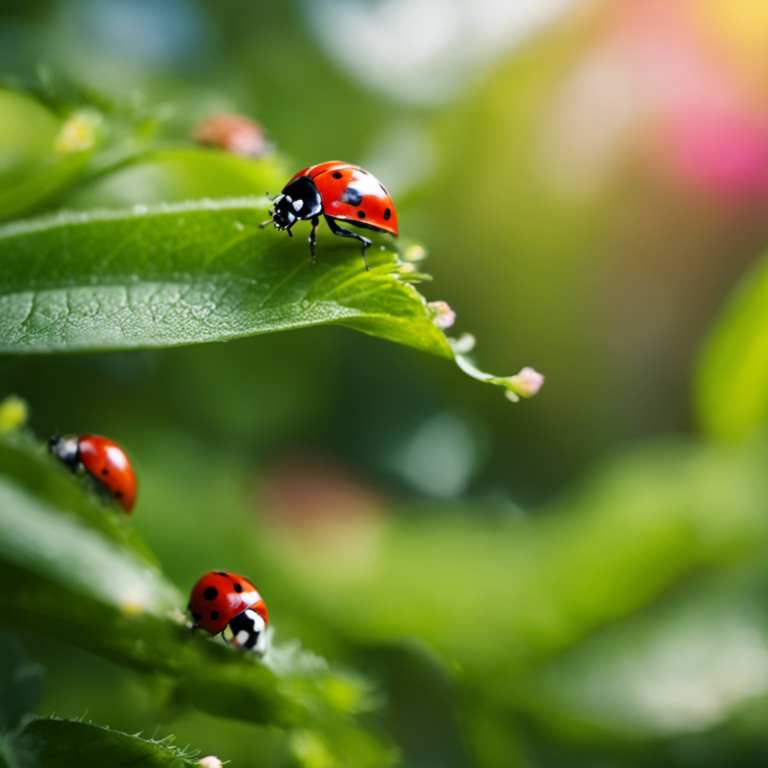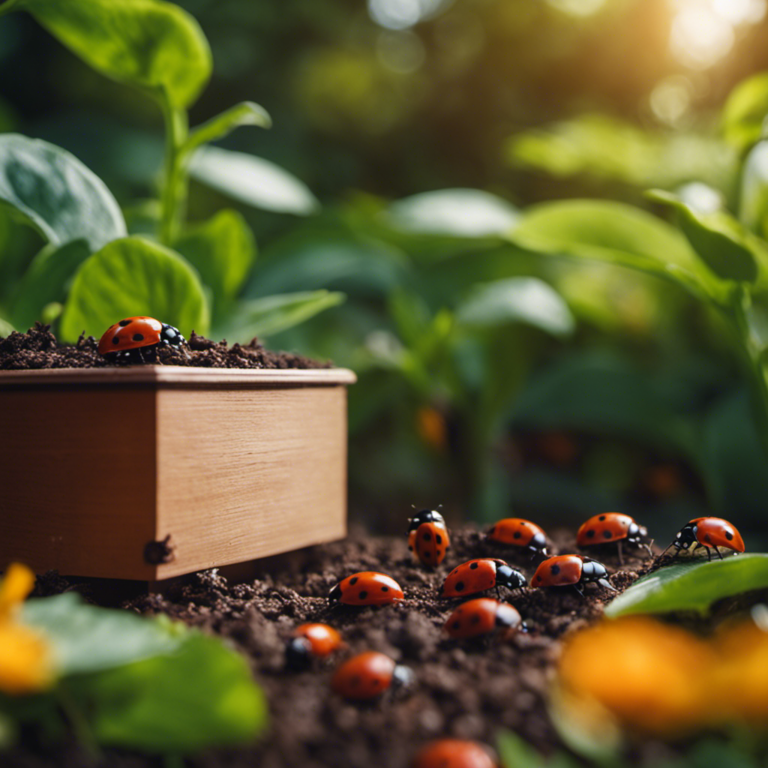Banish pests from your garden with the power of homemade pest sprays.
In this article, we’ll explore the benefits of using natural solutions, share common ingredients, and provide easy-to-follow recipes.
You’ll also find practical tips for application and important safety precautions.
Say goodbye to unwanted invaders and imagine the satisfaction of growing a thriving garden.
With these homemade pest sprays, you can take control of your garden’s destiny.
Let’s dive in and get started!
Key Takeaways
Unveiling the Hidden Secrets: Homemade Sprays for Garden Pests
Homemade pest sprays offer a natural and effective solution for gardeners who want to protect their plants. By using ingredients found in nature, we can create a defense against unwanted pests without relying on harmful chemicals.
These homemade sprays act as a shield, safeguarding the delicate ecosystem of the garden. Instead of resorting to artificial solutions, embracing the beauty of a pest-free garden promotes a healthier environment.
By unlocking nature’s hidden secrets, we can provide a sustainable and safe way to keep your garden thriving. So, let’s explore the wonders of homemade pest sprays and discover the benefits they bring.
Benefits of Homemade Pest Sprays
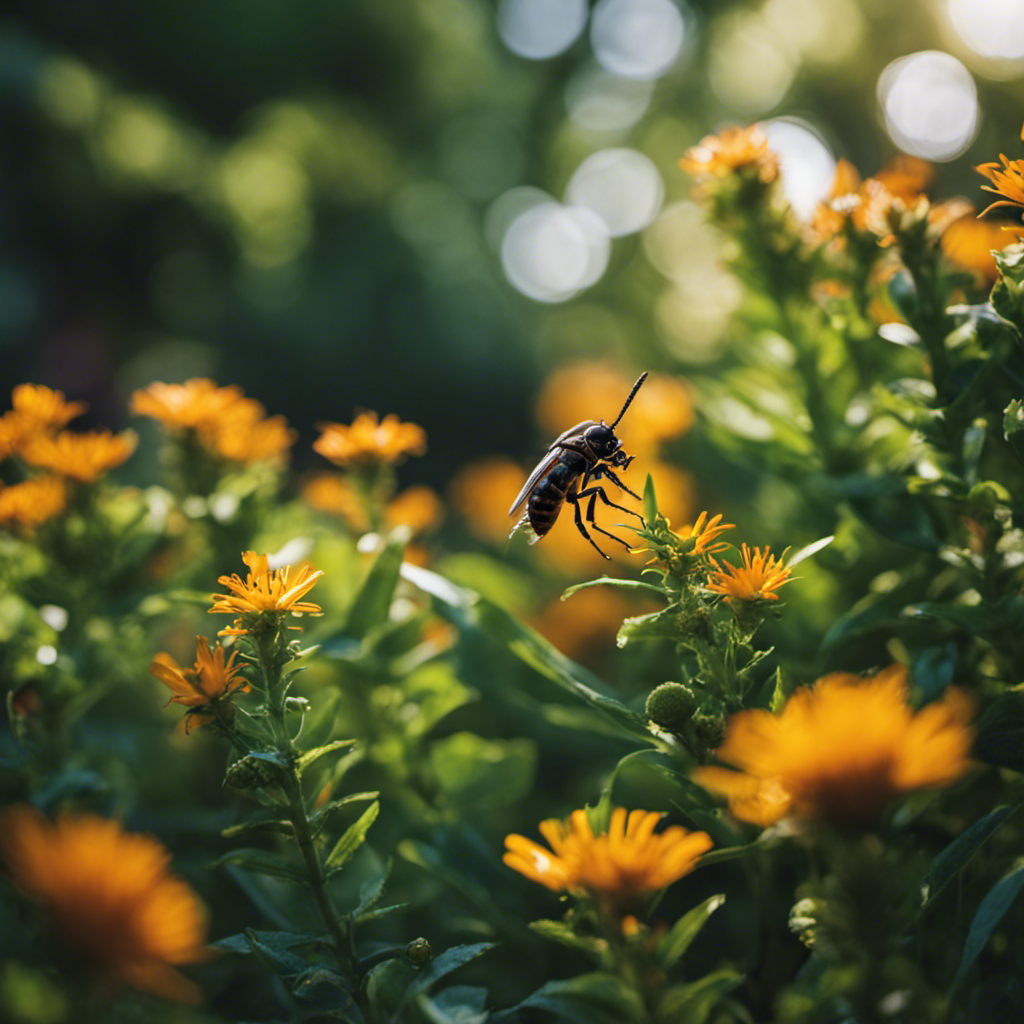
The benefits of using homemade pest sprays for your garden are numerous. One major advantage is that these sprays provide organic pest control. Unlike commercial sprays that often contain harmful chemicals, homemade sprays use natural ingredients that are safe for both plants and the environment.
By choosing organic pest control, you can reduce the negative environmental impact caused by commercial sprays. Homemade pest sprays are also cost-effective, as you can easily make them using ingredients found in your kitchen or garden.
Additionally, these sprays are customizable, allowing you to target specific pests or plant diseases. By making and using homemade pest sprays, you not only benefit your garden but also contribute to a healthier and more sustainable environment.
Common Ingredients for Homemade Pest Sprays
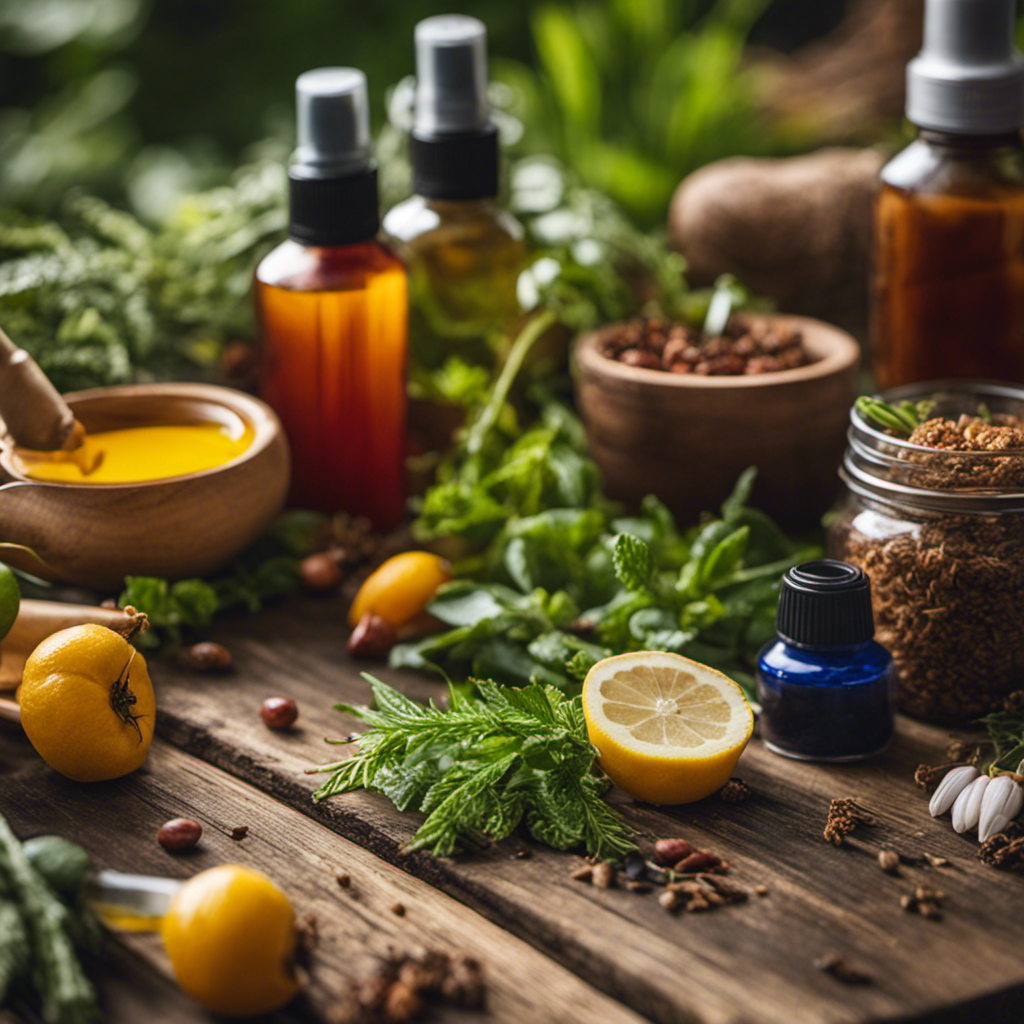
Common Ingredients for Homemade Pest Sprays
Creating effective homemade pest sprays is easy when you have common ingredients that are readily available in your kitchen or garden. Here are three alternative ingredients that have proven to be effective through various studies:
-
Garlic: Crush a few garlic cloves and mix them with water to make a potent spray. Garlic contains sulfur compounds that repel pests like aphids, mosquitoes, and ants.
-
Neem oil: Neem oil is a natural insecticide extracted from the seeds of the neem tree. It disrupts the life cycle of pests, preventing them from reproducing. Dilute neem oil with water and spray it on affected plants.
-
Chili pepper: The active ingredient in chili pepper, capsaicin, acts as a natural repellent for many garden pests. Blend chili peppers with water, strain the mixture, and use it as a spray. Be cautious as it can cause eye and skin irritation.
By incorporating these alternative ingredients into your homemade pest sprays, you can effectively control pests in your garden without relying on harmful chemicals.
Using natural ingredients for homemade pest sprays not only helps protect your garden but also promotes a healthier environment for you and your family.
Recipes for Homemade Pest Sprays

Creating homemade pest sprays is an effective and natural way to control pests in your garden. Here are a few simple recipes using common ingredients:
-
Garlic and Pepper Spray: Mince 2 cloves of garlic, add 1 teaspoon of crushed red pepper flakes, and mix with 1 quart of water. Let the mixture sit overnight, strain it, and then spray it on your plants to repel pests.
-
Neem Oil Spray: Combine 1 tablespoon of neem oil, 1 teaspoon of liquid dish soap, and 1 quart of water. Shake the mixture well and spray it on affected areas to control pests like aphids and mites.
-
Oil and Soap Spray: Mix 2 tablespoons of vegetable oil, 1 teaspoon of liquid dish soap, and 1 quart of water. Shake the mixture thoroughly and spray it on your plants to suffocate and deter pests.
Before applying these sprays extensively, it’s important to test them on a small area of your plants to ensure their effectiveness and avoid any potential harm to your garden.
Application Tips for Homemade Pest Sprays
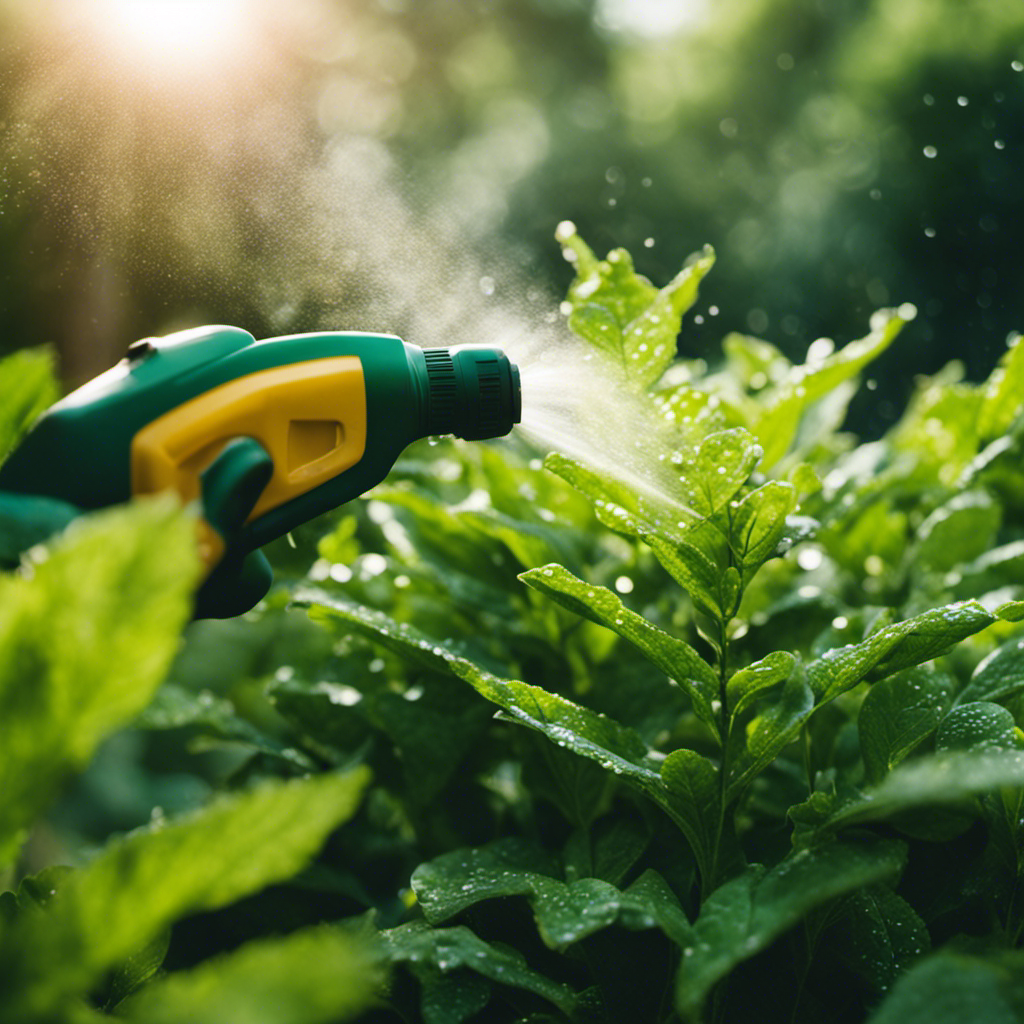
Tips for Applying Homemade Pest Sprays to Your Garden
To achieve the best results, it’s important to apply homemade pest sprays regularly in your garden. Here are three techniques that can help you effectively protect your plants from pests:
-
Proper Dilution: When preparing your homemade pest spray, make sure to follow the recipe’s instructions for dilution. This is crucial as using the right concentration ensures the spray is effective in eliminating pests without causing harm to your plants.
-
Complete Coverage: When applying the spray, ensure that you cover all parts of the plant, including the leaves, stems, and even the undersides of the leaves where pests often hide. You can use a spray bottle or a garden sprayer to evenly distribute the spray and ensure every area is protected.
-
Regular Evaluation: After applying the homemade pest spray, it’s essential to regularly assess its effectiveness. Keep an eye out for any signs of pest damage or new pest activity. If pests persist, you may need to adjust the concentration or frequency of application to effectively control them.
By following these application tips and regularly evaluating the effectiveness of your homemade pest sprays, you can maintain a healthy and pest-free garden.
Quote: ‘Regularly applying homemade pest sprays and evaluating their effectiveness is key to protecting your garden from pests.’
Precautions and Safety Measures
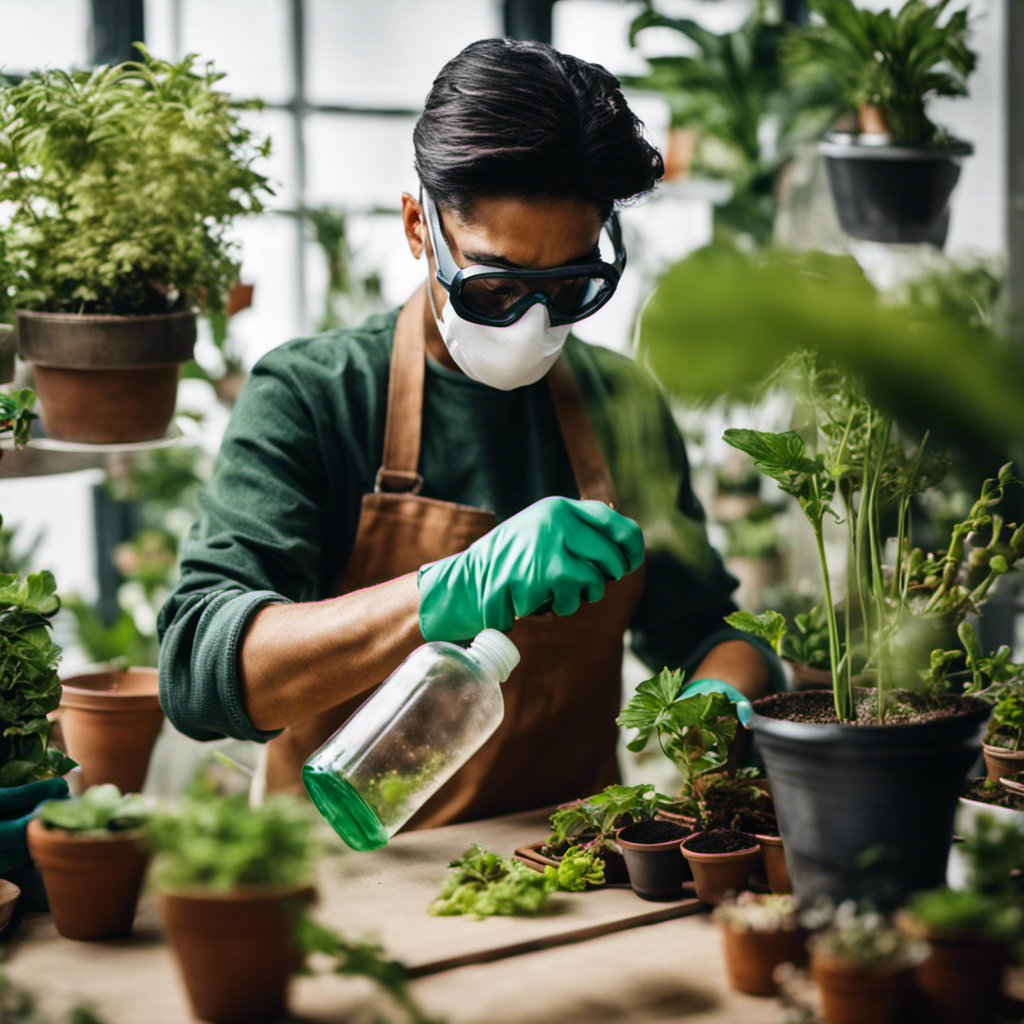
Now, let’s discuss the important aspect of taking precautions and implementing safety measures when using homemade pest sprays in your garden.
While homemade pest sprays can effectively control pests and protect your plants, it’s important to handle and use them with caution.
To begin with, always wear protective clothing such as gloves, long-sleeved shirts, and pants to minimize your exposure to the spray.
Additionally, carefully read and follow the instructions to ensure proper dilution and application.
Avoid spraying on windy days to prevent drift and unintended exposure.
It’s also essential to store the homemade pest spray in a safe and secure place, out of reach of children and pets.
Lastly, remember to wash your hands thoroughly after using the spray.
Conclusion
Homemade pest sprays offer a natural and effective solution for gardeners who want to protect their plants. By using nature’s secret ingredients, we can create a defense against unwanted pests without resorting to harmful chemicals.
These sprays act as a shield, safeguarding the delicate ecosystem of the garden. So, instead of relying on artificial solutions, why not explore the beauty of a pest-free garden while promoting a healthier environment?
Unlocking nature’s secret can provide a sustainable and safe way to keep your garden thriving.
